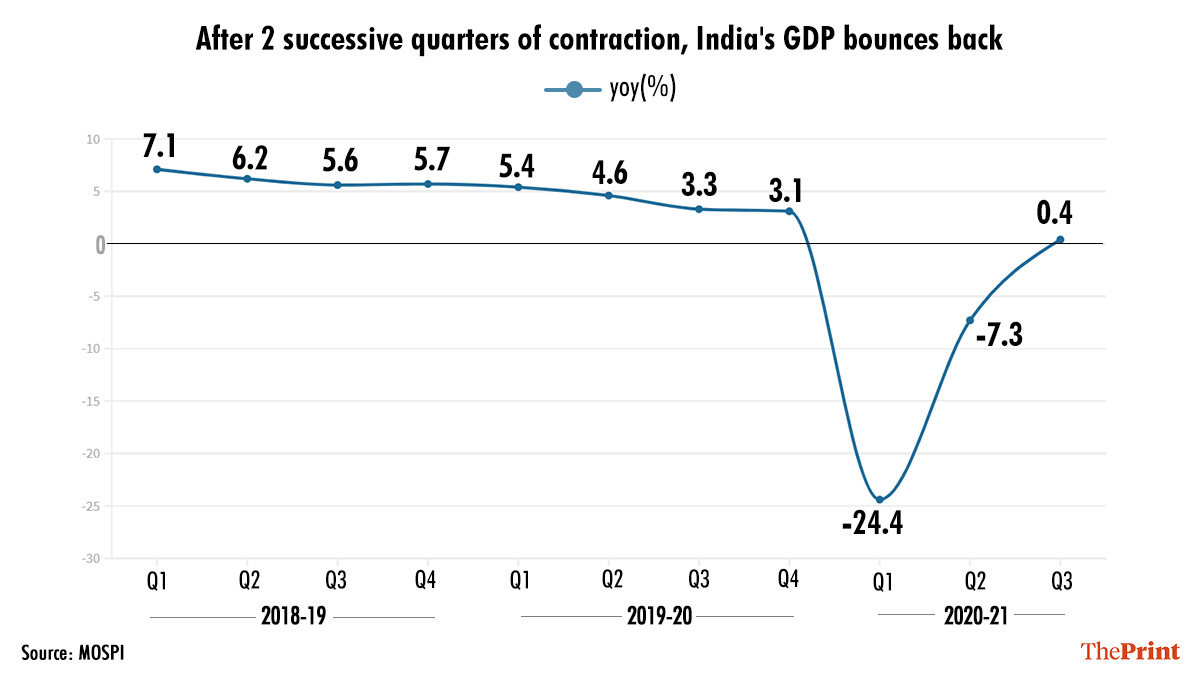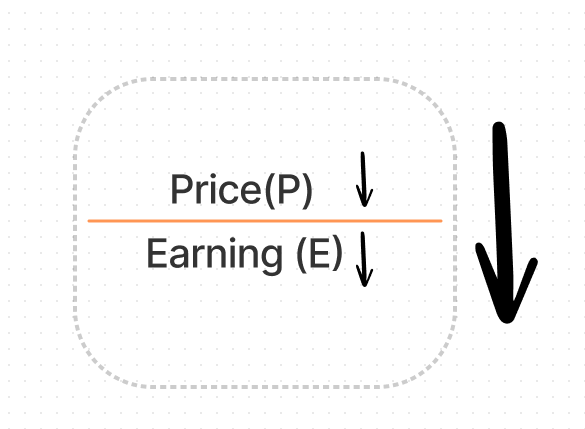How to beat Inflation?
With proven theories and data, how fast inflation rate is moving?How money flows from stock market to bond market? How you should plan your personal finance.
What is a Bubble? Are we in any Bubble situation right now in 2021? Stock Market Bubble? Crypto Bubble? Dot-com Bubble from the 1990s.
Let’s analyze and observe what’s actually going around you and how everything affects everything, how your individual contribution leads to GDP growth and affects overall economics and the markets.
Everyone is trying to beat inflation, are you sure you are doing it the right way with strategy and plan?
Are you earning enough money, saving, and investing so that you can manage the pace of your individual growth with the economy?
Do you know what is inflation and how much it affects you in the longer term?
Allow me to explain it.
What is Inflation?
Put simply, inflation is a measure of the change in purchasing power in a given currency over time. Implicit in this definition are two key components of inflation.
The first is that to define purchasing power, you have to start with a definition of what you are purchasing, and this detail, as we will see, can lead to differences in inflation measured over a given period, across measures/services.
The second is that inflation is tied to currencies, and different currencies can be exposed to different levels of inflation over the same period. Understanding these differences is key to understanding why interest rates vary across currencies and changes in exchange rates over time.
A loss of purchasing power over time is inflation, and an increase in purchasing power over time is deflation. After the 2020 Corona Pandemic Crash, the USA printed trillions of money, which means they basically brought in money into the economy or flushed that money into the economy.
That money came to countries like India also, because of which the stock market went up. Why? Because the market cap of all the listed companies went up. Because of excess liquidity, the market cap of companies has gone up.
what is the market cap?
Market capitalization, commonly called a market cap, is the market value of a publicly traded company's outstanding shares. Market capitalization is equal to the share price multiplied by the number of shares outstanding.
And what happened to GDP?
GDP of India in the last two Quarters FY20-21 has shown a decline, massive decline.

So the market cap is high and GDP is low, what will happen to Market Cap to GDP Ratio?
So what will happen?
Obviously, The ratio will go up. Market Cap to GDP ratio will go up.
In 2003, the ratio was around 130%, which was still overvalued, but the market went on to produce all-time highs over the next few years.
As of 2020, the ratio stands at roughly 150%.
So the bottom line is that in a very efficient market like the US if the market cap to GDP ratio is between 50 to 75, the market is undervalued.
If it is between 75-100 then the market is fair value.
If it is above 110 it is overvalued.
But that works for an efficient market like the US. Indian context calculation will be different because there are lots of informal sectors that come under GDP so it gets complex to analyze from that.
Because of the nature of the Indian Economy, our GDP numbers are not correctly measured, for example, the informal sector is not counted on GDP, lots of misinformation is there, so the Indian Market is inefficient from that angle.
Therefore do not rely on the market-cap to GDP ratio for investment.
But you can rely 10000% on PE ratio while investment because P/E Ratio or Price to Earnings Ratio is the ratio of the current price of a company’s share in relation to its earnings per share (EPS). It signifies the amount of money an investor is willing to invest in a single share of a company for Re. 1 of its earnings.
Also, known as the Growth Ratio.
P/E Ratio = (Current Market Price of a Share / Earnings per Share)
The price to equity ratio right now for India is very high, FY2021, in fact for the world it is very high.
But we need to understand both things.
The price is high, The earning is low. Therefore the entire PE ratio is high
You know that why earnings are low in FY20-21.
Due to the corona crash, the earning for the majority of the companies had gone down, lots of companies were not producing, factories shut down, people were not buying enough stuff. So the overall earnings went down.
P/E Ratio is a growth indicator. As the earning will improve, people will buy more that means they can afford the price of the products, the price will come down, the PE ratio will automatically come down.
Now, we know that everything right now is overvalued, the stock market is overvalued, the Real estate is overvalued. So where are you going to invest?
FD’s has given less than 4.5% real return, Inflation is almost 6%, you are losing money 100%. Real estate is overvalued.
So, the best option is to invest in businesses.
Because businesses are taking advantage of inflation. When the extra money is added circulated to an economy that is the printed money is being flushed into the economy, businesses or banks get the money at the end directly or indirectly.
We will get the money, we will spend it eventually it reaches the companies or the banks, the earnings will grow and eventually the share prices of banks and businesses grow as well.
So that’s why you should invest in Businesses and banks.
Now, let’s see how the money circulates in the market and how to make observations when the market will go down and crash?
Generally, money flows in a circular manner from the bond market to the stock market and vice versa, allow me to explain how it impacts everyone directly indirectly.
What is the Bond market?
According to Investopedia The bond market—often called the debt market, fixed-income market, or credit market—is the collective name given to all trades and issues of debt securities. Governments typically issue bonds in order to raise capital to pay down debts or fund infrastructural improvements. Publicly traded companies issue bonds when they need to finance business expansion projects or maintain ongoing operations.
And you already know what is the Stock market.
Stock Market Vs Bond Market
From the original blog by Aswath Damodaran, he is a Professor of Finance at the Stern School of Business at New York University, where he teaches corporate finance and equity valuation, I learned how money flows and how it will impact.
Blog - https://aswathdamodaran.blogspot.com/2010/10/inflation-deflation-and-investing.html
Professor Damodaran, says that right now the stock market is giving the signal that the Inflation is High, and the growth is High.
When the stock market looks more attractive when the potential of the stock market looks or appears to be high, the money flows from the bond market to the stock market and the opposite happens if the bond market looks attractive.
What is a bond yield?
Bond yield is the return an investor realizes on a bond.
Now, this attractiveness in the bond market comes from yield. So yield essentially meets returns.
For, example a ten-year treasury bond might have yielded, hypothetically let’s say 3%. Now if they suddenly increase this yield to 3.5%, we will see that a lot of money is being moved from the stock market to the bond market.
But on the flip side if they cut the yield from 3% to 2.5% the money will flow in the opposite direction.
Now, these changes might happen in 2 ways:
changes might happen slowly, what would happen is that the yield of the bond market will be slowly increased with time so the excess money that is currently available in the stock market will flow to the bond market.
It might happen as a knee jerk reaction, it means that suddenly Fed or some major government gets up and say that “enough with the stock market, we are increasing the yield of the bond market and suddenly there will be a massive outpour of money from the stock market to the bond market.
So that’s the story of the stock and bond market.
Central banks have no control over inflation, it is natural, it happens slowly.
So what should you do to Beat Inflation?
1) Invest in Indian Market
In the next few decades, the Indian market will grow massively. And invest in shares/stocks which are used daily and which have the potential to grow massively, like the FMCG sector, Technology sector, electric vehicle sectors, renewable energy, etc.
As the middle-class grow the Indian economy will also grow.
2) Stay from overvalued markets.
3) Hedge via cryptocurrency.
There is a 10-15% population that believes in crypto
The government will never be able to ban cryptocurrency. What we should be scared about is, how the stock market and bond market might find convergence, that is something we need to see because at some point this is going to happen and that is the time the stock market might come down.
No one can predict when market will crash, but we can see the pattern where it is going or where it will go.
So you should buy cryptocurrencies because the moment the stock market crashes or comes down the crypto market will boom.
So make strategies from today onwards on how you will fight Inflation and the system. Because systems break down a working-class person into pieces by different components like taxes and other things, so make your plans, strategies to secure financial freedom.
For more details on how you can build such a portfolio to beat inflation with a high success rate and high performance here is the article for you :











Simple and to the point.